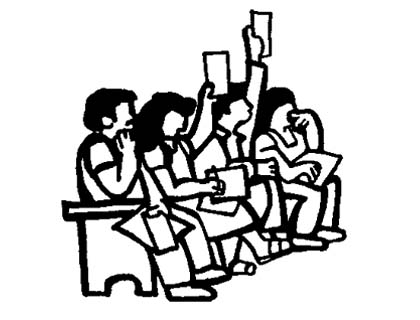For the longest time, the general opinion a human superiority over animals resided in the belief of the superiority of the human mind and the ability to create and use tools. Investigations into nature show us that human beings are not alone in making and using tools. Primates other than man make and use tools and so do crows as determined by observation and experiment.
Ants are also known to produce, fertilize and harvest crops, just like people. Then there is the question of building shelters of complexity. People are far from being alone in this when we look at termites, bees and ants. In fact, everything that humanity has done was accomplished first by insects and animals, often preceding humanity by hundreds of millions of years. Spiders routinely manufacture nets with a greater tensile strength than all of humanities engineering marvels. Sometimes they will even join efforts to make huge webs covering hundreds of square meters, which measured on the scale of people, would rival our largest cities.
Marx shows how he believes humans to be essentially different from other animals. “Men can be distinguished from animals by consciousness, by religion or anything else you like. They themselves begin to distinguish themselves from animals as soon as they begin to produce their means of subsistence, a step which is conditioned by their physical organization.” Marx alludes to one difference that humans produce their physical environments. But do not a few other animals also produce aspects of their environment as well? Marx had already acknowledged:
It is true that animals also produce. They build nests and dwellings, like the bee, the beaver, the ant, etc. But they produce only their own immediate needs or those of their young; they produce only when immediate physical need compels them to do so, while man produces even when he is free from physical need and truly produces only in freedom from such need; they produce only themselves, while man reproduces the whole of nature; their products belong immediately to their physical bodies, while man freely confronts his own product. Animals produce only according to the standards and needs of the species to which they belong, while man is capable of producing according to the standards of every species and of applying to each object its inherent standard; hence, man also produces in accordance with the laws of beauty.
A spider conducts operations that resemble those of a weaver, and a bee puts to shame many an architect in the construction of her cells. But what distinguishes the worst architect from the best of bees is this, that the architect raises his structure in imagination before he erects it in reality. At the end of every labor-process, we get a result that already existed in the imagination of the laborer at its commencement. He not only effects a change of form in the material on which he works, but he also realizes a purpose of his own that gives the law to his modus operandi, and to which he must subordinate his will. And this subordination is no mere momentary act.
Human beings have an inherent spiritual and religion nature. The vast majority of people on earth pursue some form of spiritual or religious truth. Most human beings have deep-seated religious beliefs and engage in intricate religious ritual. Pursuit of God or the supernatural is a defining characteristic of mankind and is evidenced in such common practices as prayer and worship. By contrast, formal atheism is largely inconsistent with the overall history of human nature and practice. Even professed nonbelievers pursue questions concerning life’s ultimate meaning and purpose and are drawn to whatever they consider to be of ultimate importance and value. Philosopher Harold H. Titus has said that even agnostics and atheists “tend to replace a personal god with an impersonal one – the state, race, some process in nature, or devotion to the search for truth or some other ideal.”
Man, of all earth’s creatures, is uniquely cognizant of his imminent death. This recognition brings him personal angst and contemplation of God and the possibility of immortality. Socrates stated, “The unexamined life is not worth living.” It is left for man alone to contemplate what philosophers call “the big questions of life.” On the other hand, animals can be very intelligent but shows no sign of spirituality or concern with ultimate issues.
One more factor that differentiates human beings from animals is a quality that for lack of a better term is called the practice of evil and good.
Consider the crocodile or the leopard. They have to kill in order to eat. People do the same thing, but this is a mere quantitative difference between species. The crocodile or leopard stalks, kills and eats its prey all in flowing continuity, one act following in sequence after another until the prey is completely devoured. The qualitative difference arises in the fact that the crocodile and leopard kill swiftly and efficiently, motivated by hunger and the need to eat. People will farm animals and slaughter them for the purpose of eating and manufacturing goods. The difference is one of methodology to accomplish the same ends. In the animal kingdom there is no desire beyond the end of feeding such as control, domination and exploitation. People on the other hand kill and that is not always to eat. People kill one another and even kill animals for reward or mere sport.
I would like to conclude that if this “religious animal” be changed into irreligious and evil animal s/he will be inferior to animals and such a difference will be more a disdain than a pride.

